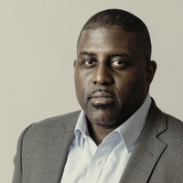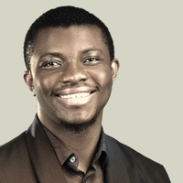 Reuters/Esa Alexander Reuters/Esa Alexander🇿🇦 French media company Canal Plus must make an offer to buy the shares of TV giant MultiChoice that it does not already own, South Africa’s Takeover Regulations Panel has ruled. Its previous offer of 105 rand ($5.45) per share was rejected earlier this month by MultiChoice’s board, who said it undervalued the broadcaster. Canal Plus recently increased its shareholdings to 35%, crossing the legal threshold where a mandatory offer is required. The panel rejected the firm’s argument that it did not have to make a mandatory offer because it was barred from holding more than 20% of the company’s voting rights due to being a foreign company. 🇳🇬 Nigeria’s federal government has introduced a new levy for companies hiring expatriate workers. It will now cost companies operating in Africa’s largest economy $15,000 per year to hire an expatriate director, and $10,000 to hire other expatriate workers. The government argues the move will help to grow the local workforce. President Bola Tinubu said the levy should not be “an obstacle to frustrate potential investors.” 🇬🇭 Ghana’s parliament has passed a new bill imposing a three-year prison sentence for anyone convicted of identifying as LGBTQ+. The bill, backed by the country’s two largest political parties, also imposes a five-year sentence for establishing or funding LGBTQ+ groups. Gay sex is already illegal in Ghana and carries a three-year sentence. The bill requires President Nana Akufo-Addo’s assent to become law. He previously said he would sign it if it was supported by most Ghanaians. The U.S. State Department said it was “deeply troubled” by the bill’s passage which it said threatened the country’s “freedoms of speech, press and assembly.” 🇸🇳 A dialogue commission organized by Senegal’s president Macky Sall has proposed June 2 as the new presidential election date. The two-day dialogue in Dakar this week was boycotted by most opposition candidates who would have run in the postponed Feb. 25 elections, because they insisted on Sall’s departure at the end of his term. Sall will make the final decision on the commission’s recommendation. Sall has said he will ask Senegal’s top court to choose a temporary president if an election is not held before his term ends on April 2. 🇬🇳 Guinea’s junta on Tuesday named former opposition leader Mamadou Oury Bah as the country’s new prime minister, a week after abruptly dissolving the interim government. Television footage showed Bah taking the oath of office, Reuters reported. The appointment of the 65-year-old economist came a day after workers began a nationwide strike to demand the release of a jailed member of the press, lower food prices, and an end to internet restrictions. Bah is expected to set up a new government to replace the one that was dismissed, and urged labor unions to call off the strike. 🇿🇦 Africa’s largest data center company is building a $104 million energy plant to power its facilities in South Africa and sidestep rolling blackouts. Teraco Data Environments, headquartered in Johannesburg, is looking to construct a 120 megawatt solar plant and an 80 MW wind farm in South Africa’s Free State province. It has raised funds from Absa Bank for the project and secured grid capacity allocation from state-owned power utility Eskom, allowing its solar plant to be connected to the national grid. | 








